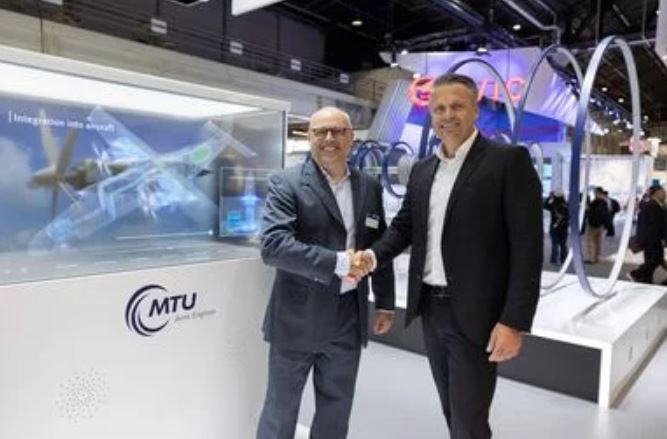Germany – MTU Aero Engines, Germany’s leading engine manufacturer, and aerospace company MT Aerospace have announced a joint project to develop a complete liquid hydrogen fuel system for commercial aviation.
The partnership aims to enable zero-emission flight and reduce the climate impact of the aviation industry. The project’s first application will be MTU’s Flying Fuel Cell™, with testing expected to begin later this year.
The LH2 fuel system being developed by MTU and MT Aerospace encompasses various components such as tanks, sensors, heat exchangers, valves, and safety and control systems. MT Aerospace, leveraging its decades of expertise with hydrogen in the aerospace sector, will be responsible for the cryogenic hydrogen storage and supply system, additively manufactured heat exchangers, sensors, and system integration.
MTU’s scope
MTU’s work package includes the safety system, control system, valve technology, and overall systems leadership. The partnership closely collaborates with the European Union Aviation Safety Agency (EASA) to ensure compliance with certification and safety-related requirements. The plan is for the MTU fuel cell to be initially used on shorter routes in the shuttle and regional aviation sector starting in 2035. As the efficiency of the fuel cell improves, it will be deployed on short and medium-haul routes, further contributing to reducing the climate impact of commercial aviation.
Liquid hydrogen fuel system
The development of a complete liquid hydrogen fuel system for commercial aviation holds great promise for achieving zero-emission flight and mitigating the environmental impact of the aviation industry. However, several challenges lie ahead. These include ensuring the safety and reliability of the LH2 fuel system, addressing infrastructure requirements for the production, storage, and distribution of liquid hydrogen, and overcoming regulatory and certification hurdles.
By driving innovation in hydrogen technology and collaborating with key stakeholders, such as EASA, MTU Aero Engines and MT Aerospace are at the forefront of advancing sustainable solutions for commercial aviation. Their efforts align with the global push for decarbonization and the transition to cleaner energy sources in the transportation sector.




